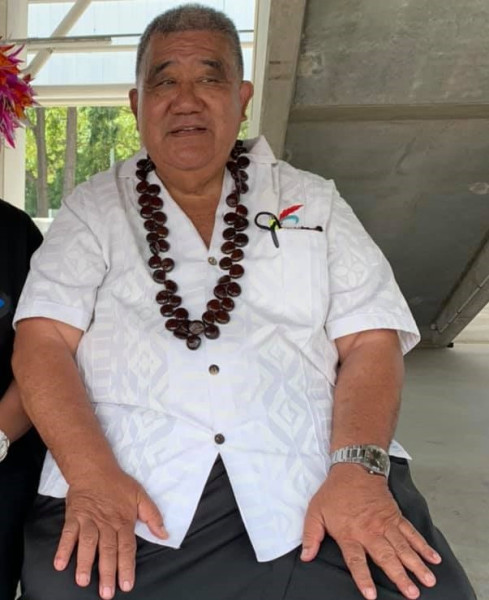Product of Dawn Raids hopes history never repeats
Product of Dawn Raids hopes history never repeats

Dunedin’s Afamasaga Pavihi (pictured) wanted to create a safe space for fellow Pacific peoples to share their harrowing experiences from the Dawn Raids era.
The Samoan Advisory Council chairman did just that after he was successfully granted funding from the first round of the Teu Le Va – Dawn Raids History Community Fund earlier this year.
Afamasaga was among the 23 recipients of the first round of the fund for his Fono Faufautua, a Samoa Otago initiative.
“Our plan was to bring our community together to share the stories of what was a frightening experience,” Afamasaga says.
“Sharing these stories with our children will help us to heal and ensure that our younger generations, and wider community, do not carry this hurt into the future.
“This way, we can live in harmony. This is especially important for the families of the victims.
“We also hope to build trust between our community and the government, so our community understands that the current government has different policies to the Dawn Raids era.”
Afamasaga, 72, left his native Samoa roots in 1971 – shortly after his 21st birthday – for a better working life in Aotearoa.
His brother, who was living in Auckland at the time, was also a drawcard for him. However, he did not quite make it there.
At the time, there were many Samoan people working at Donaghy's, a rope work factory in Dunedin, which is where Afamasaga ended up settling.
He said that executives from the factory at that time were down on staff and wanted more Samoan people to migrate to Dunedin to work for the factory.
“None of us had work permits in Samoa… The manager and Samoan men who were working there at the time were tasked to go to Samoa to seek out prospective employees amongst many of their families.
"Shortly after the Dawn Raids, Prime Minister Robert Muldoon proposed a 'good deed' for Samoan people by allowing them to come into New Zealand to work for three months.
"Unfortunately, in those times it was very difficult to obtain a work permit, let alone airfares, accommodation and general living expenses.
“Around 79 of us in Samoa were issued work permits from our families in New Zealand, but unfortunately these permits had expired before they could be used due to the delay in processing times from Immigration New Zealand," Afamasaga explains.
"Prior to finding this out, the 79 of us were asked to meet with the New Zealand Immigration in Apia along with a representative from Donaghy's Rope Works.
"The 79 of us were filled with excitement upon this invitation.
"However, unfortunately, these authorities informed us all that there were only six vacant positions for employment in Dunedin.
"I was fortunate enough to be one of those six people. This is how I ended up in Dunedin.
"The Dawn Raids period followed, and it was certainly a hurtful time for many families; some were apprehended by the police and it was a moment they will never forget.
"I am a product of the Dawn Raids and I hope that this story will help others share their stories.
"The talanoa from this funding was also to assure people that overstayers would be treated fairly if they come forward.
"There is no need for fear and the Fono was also to help with these cases."
Afamasaga now spends his time committed to supporting his Pacific communities across Aotearoa. In one of his many lines of work, he helps Samoan communities who want to build community halls anywhere in New Zealand.
His Fono was held during the 60th Samoan Independence Day celebrations earlier this year.
Afamasaga's father was Niuean-born and his mother was Samoan. They were married in Samoa.
Round two of the Teu Le Va – Dawn Raids History Community Fund is now open.
The Teu le Va - Dawn Raids History Community Fund was established last year as another step towards continuing the healing process for Pacific peoples.
Applications for the fund close on February 24, 2023.
Visit the MPP website or email [email protected] for more information.
